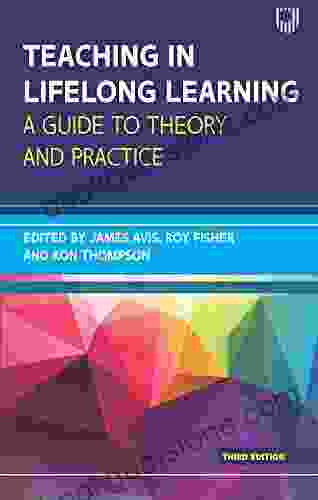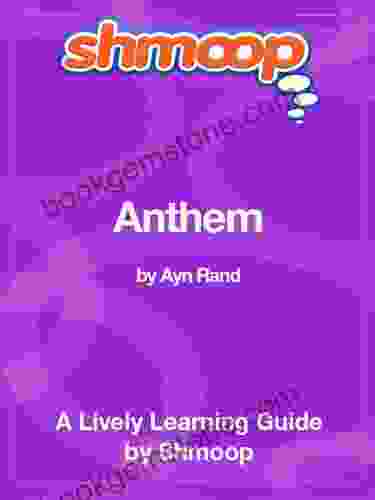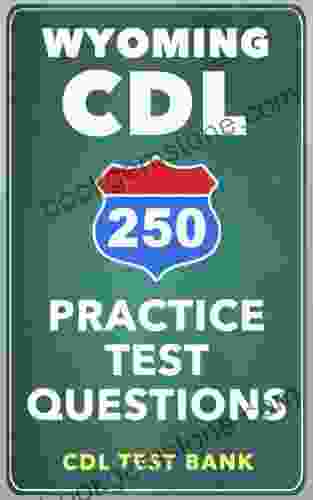Teaching in Lifelong Learning: 3e Guide to Theory and Practice (UK Higher)

<meta name="keywords" content="lifelong learning, teaching in lifelong learning, theory and practice, UK higher education, course design, assessment, supporting learners, adult learning, continuing education, professional development, higher education teaching, lifelong learning policy"> <meta name="date" content="2023-03-08"> Lifelong learning is becoming increasingly important in today's world, as people seek to update their skills and knowledge throughout their lives. This has led to a growing demand for teachers who are qualified to teach in lifelong learning contexts. This guide provides a comprehensive theoretical and practical foundation for teaching in lifelong learning contexts, with a particular focus on the UK higher education sector. It covers key concepts, theories, and practices, as well as practical guidance on course design, assessment, and supporting learners. <h2>Key Concepts</h2> **Lifelong learning** is a term that refers to learning that takes place throughout a person's life, from childhood to adulthood. It can be formal, informal, or non-formal, and can take place in a variety of settings, including schools, universities, workplaces, and community organisations. **Adult learning** is a specific type of lifelong learning that focuses on the learning needs of adults. Adult learners have different needs and motivations than younger learners, and they may require different teaching methods and approaches. **Continuing professional development (CPD)** is a type of lifelong learning that is undertaken by professionals to maintain and develop their skills and knowledge. CPD can take a variety of forms, including courses, workshops, conferences, and online learning. **Higher education** is a type of lifelong learning that takes place at universities and colleges. Higher education can be undergraduate or postgraduate, and it can lead to a variety of qualifications, including degrees, diplomas, and certificates. <h2>Theories of Lifelong Learning</h2> There are a number of different theories that have been proposed to explain lifelong learning. These theories can be divided into two main categories: * **Developmental theories** focus on the individual learner and their development over time. These theories argue that lifelong learning is a natural part of human development, and that it is driven by a variety of factors, including biological, psychological, and social factors. * **Social theories** focus on the social context of lifelong learning. These theories argue that lifelong learning is influenced by a variety of social factors, including culture, economics, and politics. <h2>Practices of Lifelong Learning</h2> There are a variety of different practices that can be used to support lifelong learning. These practices can be divided into three main categories: * **Formal learning** takes place in a structured setting, such as a school, university, or workplace. Formal learning is typically accredited, and it can lead to a qualification. * **Informal learning** takes place outside of a structured setting, such as through reading, watching TV, or talking to friends and family. Informal learning is not typically accredited, but it can still be valuable for developing new skills and knowledge. * **Non-formal learning** is a type of learning that takes place in a structured setting, but it is not accredited. Non-formal learning can include activities such as workshops, courses, and conferences. <h2>Teaching in Lifelong Learning</h2> Teaching in lifelong learning contexts requires a different approach than teaching in traditional school settings. Adult learners have different needs and motivations than younger learners, and they may require different teaching methods and approaches. Some of the key principles of teaching in lifelong learning contexts include: * **Respecting the learner** as an adult with their own experiences and knowledge. * **Being flexible** in your teaching approach to meet the needs of individual learners. * **Creating a supportive learning environment** that is conducive to learning. * **Using a variety of teaching methods** to engage learners and meet their different learning styles. * **Assessing learners** in a way that is fair and meaningful. <h2>Course Design for Lifelong Learning</h2> When designing a course for lifelong learners, it is important to consider the following factors: * The **needs of the learners**. What do the learners want to learn? What are their prior knowledge and skills? * The **learning environment**. Where will the course be taught? What resources are available? * The **teaching methods**. What teaching methods are most appropriate for the learners and the learning environment? * The **assessment methods**. How will the learners be assessed? What criteria will be used to assess their learning? <h2>Assessment in Lifelong Learning</h2> Assessment is an important part of teaching and learning. It allows teachers to track learners' progress and identify areas where they need additional support. There are a variety of different assessment methods that can be used in lifelong learning contexts. These methods include: * **Formative assessment** is used to provide feedback to learners on their progress. Formative assessment can take a variety of forms, such as quizzes, assignments, and presentations. * **Summative assessment** is used to assess learners' achievement at the end of a course or program. Summative assessment can take a variety of forms, such as exams, projects, and portfolios. <h2>Supporting Learners</h2> Lifelong learners may face a variety of challenges, such as: * **Financial difficulties**. Lifelong learning can be expensive, and learners may need to find ways to finance their studies. * **Time constraints**. Lifelong learners may have busy schedules, and they may need to find ways to fit learning into their lives. * **Lack of support**. Lifelong learners may not have the support of their family and friends, and they may need to find ways to build a supportive network. Teachers can play an important role in supporting lifelong learners by: * **Providing financial advice**. Teachers can help learners to find scholarships, grants, and other financial aid. * **Offering flexible learning options**. Teachers can offer courses that are part-time, online, or evening-only. * **Creating a supportive learning environment**. Teachers can create a learning environment that is welcoming and inclusive, and where learners feel supported and respected. Teaching in lifelong learning contexts is a rewarding and challenging experience. By understanding the key concepts, theories, and practices of lifelong learning, you can create a positive and supportive learning environment for your students.4.7 out of 5
| Language | : | English |
| File size | : | 10248 KB |
| Text-to-Speech | : | Enabled |
| Screen Reader | : | Supported |
| Enhanced typesetting | : | Enabled |
| Word Wise | : | Enabled |
| Print length | : | 362 pages |
Do you want to contribute by writing guest posts on this blog?
Please contact us and send us a resume of previous articles that you have written.
 Best Book
Best Book Page Flip
Page Flip Bookshelf
Bookshelf Literary loom
Literary loom Chapter
Chapter Bookish
Bookish PageTurner
PageTurner Bibliophile
Bibliophile Story
Story Inkwell
Inkwell Bookworm
Bookworm Labyrinth
Labyrinth Plot Twist
Plot Twist Prose
Prose Paperback
Paperback Storyteller
Storyteller Sanctuary
Sanctuary Fiction
Fiction Reading
Reading Chronicle
Chronicle Read
Read Lynda Field
Lynda Field Julia Quinn
Julia Quinn Miles Martin
Miles Martin Janet Chapple
Janet Chapple Kim Heinbuch
Kim Heinbuch Wolfgang Daunicht
Wolfgang Daunicht Robert Collins
Robert Collins Bob Shepton
Bob Shepton Wickaninnish Inn
Wickaninnish Inn Joseph Toone
Joseph Toone Peter Mansfield
Peter Mansfield Grady Hendrix
Grady Hendrix Nikki Nichols
Nikki Nichols Laura Albritton
Laura Albritton Viki Winterton
Viki Winterton Christophe P Yerling Ph D
Christophe P Yerling Ph D Shanta Kumar
Shanta Kumar Evie Litton
Evie Litton Patricia Briggs
Patricia Briggs William Pitts
William Pitts Ana Sortun
Ana Sortun David J Rothman
David J Rothman Tony Mendoza
Tony Mendoza Michele Shriver
Michele Shriver Khalid Khashoggi
Khalid Khashoggi Jason Dean
Jason Dean Kim Heldman
Kim Heldman Cosmic Kids Publications
Cosmic Kids Publications Lucy Coleman
Lucy Coleman Stephen John
Stephen John Gerald Hausman
Gerald Hausman L T Ryan
L T Ryan Lawrence Osborne
Lawrence Osborne Nachole Johnson
Nachole Johnson Anna Curran
Anna Curran Paul Watson
Paul Watson Karsten Heuer
Karsten Heuer Joshua Jelly Schapiro
Joshua Jelly Schapiro Katrina Lawrence
Katrina Lawrence Colson Whitehead
Colson Whitehead Lesley Jane Eales Reynolds
Lesley Jane Eales Reynolds April Vahle Hamel
April Vahle Hamel Jane Bottomley
Jane Bottomley Kaye Edwards
Kaye Edwards Ashley Schmitt
Ashley Schmitt Alina Adams
Alina Adams Ken Chaddock
Ken Chaddock Horace C A
Horace C A Laura Peyton Roberts
Laura Peyton Roberts Monica Sorrenson
Monica Sorrenson Rusty Young
Rusty Young Christine Wilcox
Christine Wilcox Alan Charlesworth
Alan Charlesworth Paul Murton
Paul Murton Um A Yube
Um A Yube Caryn Boddie
Caryn Boddie Nicholas Gallo
Nicholas Gallo Genius Reads
Genius Reads Zigzag English
Zigzag English Mark Zegarelli
Mark Zegarelli Lewis Morris
Lewis Morris Dr Jyuthica Laghate
Dr Jyuthica Laghate Kate Williams
Kate Williams Manny Serrato
Manny Serrato Various
Various Narasimha Karumanchi
Narasimha Karumanchi Kevin Marx
Kevin Marx Mark Greaney
Mark Greaney Zanna Sloniowska
Zanna Sloniowska Benjamin P Bowser
Benjamin P Bowser Michael Corayer
Michael Corayer Narendra Kumar V
Narendra Kumar V Cliff Seruntine
Cliff Seruntine Kathleen Kirkland
Kathleen Kirkland Anuj Tikku
Anuj Tikku Luisa Gastambide
Luisa Gastambide Snap Summaries
Snap Summaries Elizabeth Hay
Elizabeth Hay Meghan Mccarthy
Meghan Mccarthy Insight Guides
Insight Guides Jim Mancuso
Jim Mancuso Proprietary Edition Kindle Edition
Proprietary Edition Kindle Edition Edward Hoagland
Edward Hoagland Kristin Hannah
Kristin Hannah Jon A Archambault
Jon A Archambault W E B Griffin
W E B Griffin T A Williams
T A Williams Mariah Laine Moyle
Mariah Laine Moyle Tim Hannigan
Tim Hannigan Simon Turney
Simon Turney Hugo Banzer Suarez
Hugo Banzer Suarez Skip Hollandsworth
Skip Hollandsworth Jonny Zucker
Jonny Zucker Jamie Jensen
Jamie Jensen Richard Henry Dana
Richard Henry Dana Ian C Friedman
Ian C Friedman Fiona Gibson
Fiona Gibson Jay H Lefkowitch
Jay H Lefkowitch Cyndi Kinney
Cyndi Kinney Fethi Mansouri
Fethi Mansouri Alex Hibbert
Alex Hibbert John Germov
John Germov Stanley Vast
Stanley Vast Sara Wheeler
Sara Wheeler Kerry Karram
Kerry Karram Edward R Lachapelle
Edward R Lachapelle Magnus D Jango
Magnus D Jango Hugh Sinclair
Hugh Sinclair Redhen Family
Redhen Family Rochelle Knight
Rochelle Knight John Merriam
John Merriam Randy Wayne White
Randy Wayne White Elena Leman
Elena Leman Lawrence Durrell
Lawrence Durrell Mitt Romney
Mitt Romney Amy Wilentz
Amy Wilentz Mike Kraus
Mike Kraus Helene Martensson
Helene Martensson Kanchan Suyash
Kanchan Suyash Tania N Shah
Tania N Shah Gina Wisker
Gina Wisker Rich Polanco
Rich Polanco Ian Tuhovsky
Ian Tuhovsky Jeanie Buss
Jeanie Buss Andy Russell
Andy Russell Tim Bauerschmidt
Tim Bauerschmidt S K Gupta
S K Gupta Stan Skrabut
Stan Skrabut William Wadsworth
William Wadsworth Janice K Ledford
Janice K Ledford Janet Evans
Janet Evans R Raman
R Raman Lucille Recht Penner
Lucille Recht Penner Ingrid P Wicken
Ingrid P Wicken Michelle Lee
Michelle Lee Leo Books
Leo Books John Rae
John Rae Illustrated Edition Kindle Edition
Illustrated Edition Kindle Edition Dk
Dk Bookrags Com
Bookrags Com Emily Colin
Emily Colin Nicholas J Cotsonika
Nicholas J Cotsonika Savage Greenboro
Savage Greenboro Tony Horwitz
Tony Horwitz Nicholas Bjorn
Nicholas Bjorn Rex Nelson
Rex Nelson Mark Lee
Mark Lee Robert Finch
Robert Finch Shay Spivey
Shay Spivey Osasumwen Asoro
Osasumwen Asoro Paul Ames
Paul Ames Wayne Johnston
Wayne Johnston William W Johnstone
William W Johnstone John W Lundin
John W Lundin Fatime Losonci
Fatime Losonci Mark Dawson
Mark Dawson 50minutes Com
50minutes Com Ged Wilmot
Ged Wilmot Bob Duff
Bob Duff Elaine Sciolino
Elaine Sciolino Martin Woodward
Martin Woodward John Seibert Farnsworth
John Seibert Farnsworth John Henderson
John Henderson Andy Kirkpatrick
Andy Kirkpatrick Wizer
Wizer Prasad Raju V V N R Pathapati
Prasad Raju V V N R Pathapati Julia Alvarez
Julia Alvarez Michel Roy
Michel Roy Jason Hogan
Jason Hogan Rod Kulbach
Rod Kulbach Rebecca E F Barone
Rebecca E F Barone Steven W Dulan
Steven W Dulan Michael Renshaw
Michael Renshaw Russell Maddicks
Russell Maddicks Rico Austin
Rico Austin Noor De Olinad
Noor De Olinad Lloyd Richardson
Lloyd Richardson Eric Newman
Eric Newman Konstantinos Mylonas
Konstantinos Mylonas Disha Experts
Disha Experts Lonely Planet
Lonely Planet Vincent Chidindu Asogwa
Vincent Chidindu Asogwa Bright Summaries
Bright Summaries Nicolas Rodak
Nicolas Rodak Terry Frei
Terry Frei Nisha Garg
Nisha Garg Ben Tall
Ben Tall Sean Dietrich
Sean Dietrich General
General Kayla Chalko
Kayla Chalko Sarah Vowell
Sarah Vowell Margaret K Nydell
Margaret K Nydell Brooks Fiesinger
Brooks Fiesinger Steven Cowie
Steven Cowie Meike Winnemuth
Meike Winnemuth Triumphant Test Prep
Triumphant Test Prep John Hemming
John Hemming Aminta Arrington
Aminta Arrington Sigurd F Olson
Sigurd F Olson Warwick Trucker
Warwick Trucker Robert Crais
Robert Crais Laura Lincoln Maitland
Laura Lincoln Maitland Neil Chelton
Neil Chelton J D Ware
J D Ware Kristine Ellingson
Kristine Ellingson Deanna Raybourn
Deanna Raybourn James Cave
James Cave Helene St James
Helene St James Nick Smith
Nick Smith Sophie Fuggle
Sophie Fuggle Bruce Boudreau
Bruce Boudreau Jearl Walker
Jearl Walker Richard Kadrey
Richard Kadrey Educational Testing Service
Educational Testing Service Nielson Phu
Nielson Phu Dr Lew Deitch
Dr Lew Deitch Wilfred M Mcclay
Wilfred M Mcclay C E Flores
C E Flores Trevanian
Trevanian Maggie Ryan
Maggie Ryan Ross Bonander
Ross Bonander Sport Hour
Sport Hour Douglas J Gould
Douglas J Gould Wayne J Lutz
Wayne J Lutz C F Crist
C F Crist Chic Scott
Chic Scott Greg Breining
Greg Breining William Ma
William Ma Justin Goldman
Justin Goldman Jeremy K Davis
Jeremy K Davis John Gilstrap
John Gilstrap Sandra Dallas
Sandra Dallas Louis L Amour
Louis L Amour Laura Lee Smith
Laura Lee Smith Cindi Myers
Cindi Myers David Gordon
David Gordon Lucy Peet
Lucy Peet Rosita Forbes
Rosita Forbes Julia Ann Clayton
Julia Ann Clayton Maria Montessori
Maria Montessori Ilona Andrews
Ilona Andrews Kaplan Test Prep
Kaplan Test Prep Nadav Snir
Nadav Snir Yaa Gyasi
Yaa Gyasi Wendy C Crone
Wendy C Crone Kristopher Martel
Kristopher Martel John Hiker
John Hiker Emt Basic Exam Prep Team
Emt Basic Exam Prep Team Tao Le
Tao Le Topher Donahue
Topher Donahue Joel J Lerner
Joel J Lerner G Neri
G Neri Sylvain Tesson
Sylvain Tesson Tracy Johnston
Tracy Johnston Stephen Haddelsey
Stephen Haddelsey Leslie Davenport
Leslie Davenport Pat Thomson
Pat Thomson Lisa Kleypas
Lisa Kleypas David Archer
David Archer Nicholas Crowder
Nicholas Crowder Andrew Hempstead
Andrew Hempstead Juliet Grames
Juliet Grames Kenneth Oppel
Kenneth Oppel Sharon A Wynne
Sharon A Wynne Scott Butler
Scott Butler Lally Brown
Lally Brown Robert B Parker
Robert B Parker Philip Donlay
Philip Donlay Baby Professor
Baby Professor Kazim Ali
Kazim Ali Mark Mclaughlin
Mark Mclaughlin Huma Filo
Huma Filo Christopher D Nolan
Christopher D Nolan Nigel Cliff
Nigel Cliff Melody Carlson
Melody Carlson George Orwell
George Orwell Prepvantage
Prepvantage Simon Richmond
Simon Richmond Khaled Hosseini
Khaled Hosseini Manik Sheoran
Manik Sheoran Garry J Shaw
Garry J Shaw Len Airey
Len Airey Jackson Carter
Jackson Carter Jay Kirk
Jay Kirk One Edition Kindle Edition
One Edition Kindle Edition Richard Palmer
Richard Palmer Garry Burnett
Garry Burnett Gavin Francis
Gavin Francis Gregg Hurwitz
Gregg Hurwitz Ken Griffey Jr
Ken Griffey Jr Laura Ben David
Laura Ben David Rajani Katta
Rajani Katta Balazs Csigi
Balazs Csigi Michele G Kunz
Michele G Kunz Brandon Royal
Brandon Royal Matt Racine
Matt Racine Mauricio Fau
Mauricio Fau John Scherber
John Scherber Manfred Theisen
Manfred Theisen Peterson S
Peterson S Ron Siliko
Ron Siliko Pip Williams
Pip Williams Bruce Hunt
Bruce Hunt Ted Chiang
Ted Chiang Edwyn Forest
Edwyn Forest Language Guru
Language Guru Thomas E Johnson
Thomas E Johnson Sigrid Fry Revere
Sigrid Fry Revere Robert Cargill
Robert Cargill John Morrison
John Morrison L Waxy Gregoire
L Waxy Gregoire Richard Bak
Richard Bak Robert N Rosen
Robert N Rosen Brian Mcfarlane
Brian Mcfarlane Lorelou Desjardins
Lorelou Desjardins Joseph Robertia
Joseph Robertia Ted Kulfan
Ted Kulfan Supersummary
Supersummary John Walters
John Walters Boye Lafayette De Mente
Boye Lafayette De Mente Philip Jackson
Philip Jackson Steve Warner
Steve Warner Kathleen Norris
Kathleen Norris Steve Schwartz
Steve Schwartz Harley Wylde
Harley Wylde Rupika Raj
Rupika Raj Dixie Dansercoer
Dixie Dansercoer Terry Pratchett
Terry Pratchett Carlos A Caggiani
Carlos A Caggiani Jen Beck Seymour
Jen Beck Seymour Tim Notier
Tim Notier Hannah Tyson
Hannah Tyson William Shakespeare
William Shakespeare Rob Pate
Rob Pate Luca Brambilla
Luca Brambilla Jeffrey Alford
Jeffrey Alford Eric Engle
Eric Engle Moshe Ohayon
Moshe Ohayon United States Government Us Army
United States Government Us Army Jack Slater
Jack Slater Julian Stern
Julian Stern Fred Ray Lybrand
Fred Ray Lybrand Matthew Simon
Matthew Simon Rory Stewart
Rory Stewart Erin Trahan
Erin Trahan Seyyed Hossein Nasr
Seyyed Hossein Nasr Katherine Nouri Hughes
Katherine Nouri Hughes Caitlin Doughty
Caitlin Doughty Andrew Hudgins
Andrew Hudgins Mike Chambers
Mike Chambers Joe Pelletier
Joe Pelletier Marie Benedict
Marie Benedict Rhonda Leeman Taylor
Rhonda Leeman Taylor Helen Dunn Frame
Helen Dunn Frame Pamela K Lamb
Pamela K Lamb Smart Edition
Smart Edition Ben Malisow
Ben Malisow Simon Hart
Simon Hart Jared Derksen
Jared Derksen Fodor S Travel Guides
Fodor S Travel Guides Lingo Mastery
Lingo Mastery Carla Mooney
Carla Mooney Neha Gupta
Neha Gupta Marie Cirano
Marie Cirano Raquel Baccetto
Raquel Baccetto Bob Smale
Bob Smale Hicham And Mohamed Ibnalkadi
Hicham And Mohamed Ibnalkadi Georgios Papadakis
Georgios Papadakis Joseph Phillips
Joseph Phillips Vince Kotchian
Vince Kotchian Markes E Johnson
Markes E Johnson Tim Dowley
Tim Dowley Tim Brown
Tim Brown Rebecca Hill
Rebecca Hill Russell Streeter
Russell Streeter Zip Reads
Zip Reads Dr Hooelz
Dr Hooelz Paul Johnson
Paul Johnson Tony Daffern
Tony Daffern Kira Salak
Kira Salak Print Replica Kindle Edition
Print Replica Kindle Edition Darren Alff
Darren Alff Dan Fullerton
Dan Fullerton Patrick O Sullivan
Patrick O Sullivan Mark Rosenman
Mark Rosenman Rachel Russ
Rachel Russ Xavier Marie Bonnot
Xavier Marie Bonnot Pauline Harmange
Pauline Harmange Kevin Shea
Kevin Shea Lance Pototschnik
Lance Pototschnik Michael Powell
Michael Powell Nick Adams
Nick Adams Con Coughlin
Con Coughlin Frosty Wooldridge
Frosty Wooldridge Mary Ann Hogan
Mary Ann Hogan Douglas Preston
Douglas Preston Ross Blankenship
Ross Blankenship Emily Kimelman
Emily Kimelman Quick Reads
Quick Reads Alexis Lipsitz Flippin
Alexis Lipsitz Flippin Roy Fisher
Roy Fisher Smart Reads
Smart Reads Fridtjof Nansen
Fridtjof Nansen Sterling Test Prep
Sterling Test Prep Tiara R Brown
Tiara R Brown Dr John Hockey
Dr John Hockey Joeanna Rebello Fernandes
Joeanna Rebello Fernandes Lonely Planet Kids
Lonely Planet Kids Joshua Armstrong
Joshua Armstrong Gil Martin
Gil Martin Hilde Hoogenboom
Hilde Hoogenboom Kevin Biggar
Kevin Biggar A R Vasishtha
A R Vasishtha Seth Abramson
Seth Abramson Edna Fernandes
Edna Fernandes Preston George Pysh
Preston George Pysh Jesse M Ehrenfeld
Jesse M Ehrenfeld Eric Bodnar
Eric Bodnar Jocelyn Jane Cox
Jocelyn Jane Cox Jenny Mackay
Jenny Mackay W M Raebeck
W M Raebeck Maria Spantidi
Maria Spantidi Francis J Buckley
Francis J Buckley Rick Steves
Rick Steves Edulink Gmbh
Edulink Gmbh Dr Ray Makar
Dr Ray Makar Stephan Orth
Stephan Orth J R Klein
J R Klein John Murray
John Murray Approach Guides
Approach Guides Bob Mckenzie
Bob Mckenzie Stephen Ausherman
Stephen Ausherman John Keahey
John Keahey Doug Gaskill
Doug Gaskill Jeff Hay
Jeff Hay John Howells
John Howells Susan Weese
Susan Weese Saroo Brierley
Saroo Brierley Ray Walker
Ray Walker Robert D Kaplan
Robert D Kaplan J Maarten Troost
J Maarten Troost Anita Landoll
Anita Landoll Isee Exam Preparation Experts
Isee Exam Preparation Experts Jane Moore
Jane Moore Grace Barrington Shaw
Grace Barrington Shaw Megan Poore
Megan Poore J R Haseloff
J R Haseloff Luca Vargiu
Luca Vargiu James Cowan
James Cowan Jean Vives
Jean Vives Helen Wenley
Helen Wenley Eugene C Toy
Eugene C Toy Businessnews Publishing
Businessnews Publishing Michelle Larkin
Michelle Larkin Stuart Woods
Stuart Woods Michael Vlessides
Michael Vlessides Angela Stevens
Angela Stevens Kindle Edition
Kindle Edition Tessa Dare
Tessa Dare Keri Bloomfield
Keri Bloomfield Brien Foerster
Brien Foerster Ibl Press
Ibl Press Felicie Williams
Felicie Williams Nick Angelis
Nick Angelis Trivium Test Prep
Trivium Test Prep Greg Gilhooly
Greg Gilhooly Morgan Stafford
Morgan Stafford
Light bulbAdvertise smarter! Our strategic ad space ensures maximum exposure. Reserve your spot today!

 Ignacio HayesUnveiling the Allure of "Hockey Punk": A Next-Gen Hockey Romance that Breaks...
Ignacio HayesUnveiling the Allure of "Hockey Punk": A Next-Gen Hockey Romance that Breaks... Troy SimmonsFollow ·6.8k
Troy SimmonsFollow ·6.8k Edwin CoxFollow ·17.6k
Edwin CoxFollow ·17.6k Caleb CarterFollow ·9.7k
Caleb CarterFollow ·9.7k Jackson BlairFollow ·16.7k
Jackson BlairFollow ·16.7k Devin CoxFollow ·10.5k
Devin CoxFollow ·10.5k Brett SimmonsFollow ·18.8k
Brett SimmonsFollow ·18.8k Lord ByronFollow ·13.8k
Lord ByronFollow ·13.8k Garrett BellFollow ·9.6k
Garrett BellFollow ·9.6k

 Scott Parker
Scott ParkerGerman Men Sit Down To Pee And Other Insights Into German...
German culture is...

 Tyler Nelson
Tyler NelsonHigh School: A Comprehensive Guide to Surviving the...
High school can...
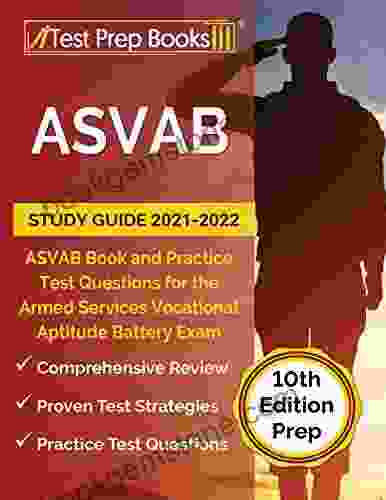
 Dan Bell
Dan BellUnlocking Success in Military Careers: A Comprehensive...
Embarking on a military career is a...
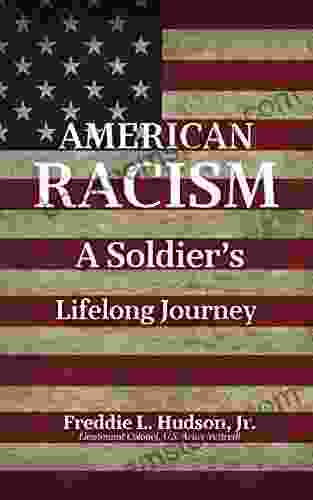
 Leslie Carter
Leslie CarterAn American Soldier's Lifelong Journey with Racism: From...
In the annals of...
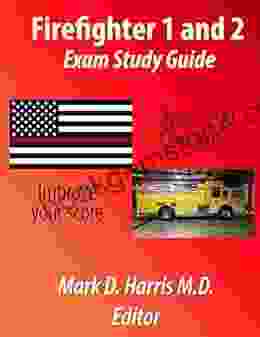
 Aldous Huxley
Aldous HuxleyFirefighters: Guardians of Our Communities and Exam Study...
Firefighters, the valiant sentinels of...
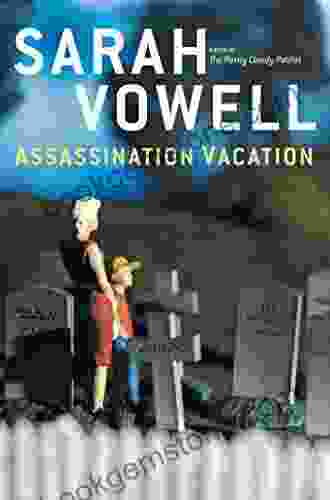
 Jason Reed
Jason ReedAn Unforgettable Literary Journey: Exploring...
: A Trip Down History's Darkest...
4.7 out of 5
| Language | : | English |
| File size | : | 10248 KB |
| Text-to-Speech | : | Enabled |
| Screen Reader | : | Supported |
| Enhanced typesetting | : | Enabled |
| Word Wise | : | Enabled |
| Print length | : | 362 pages |


